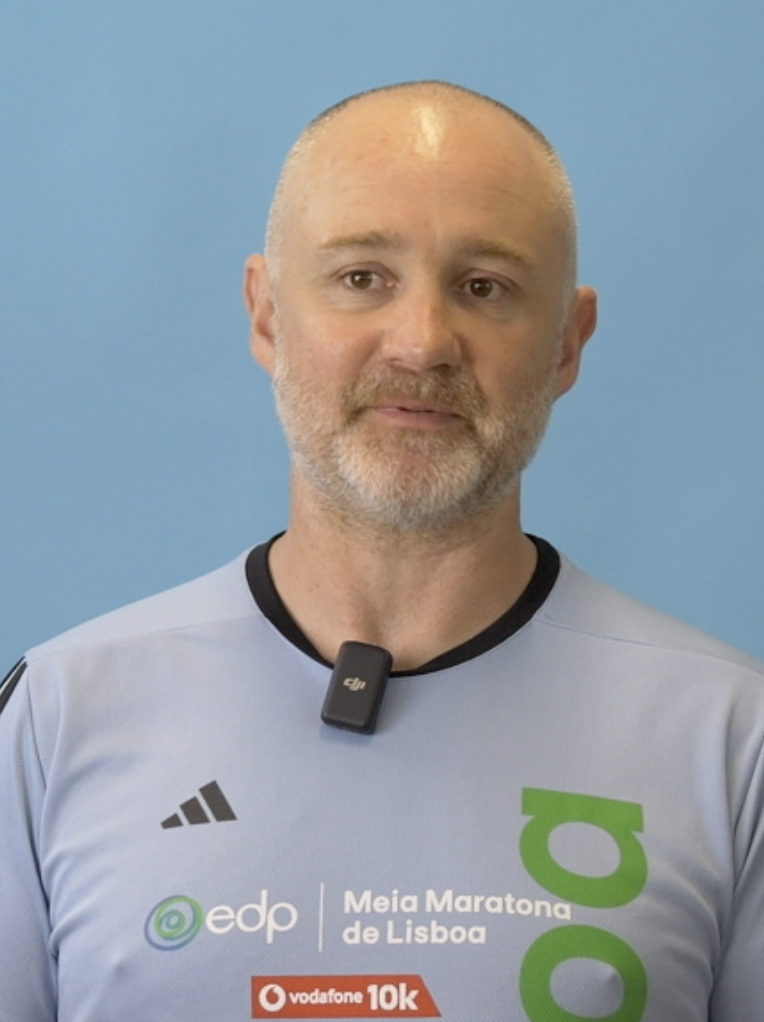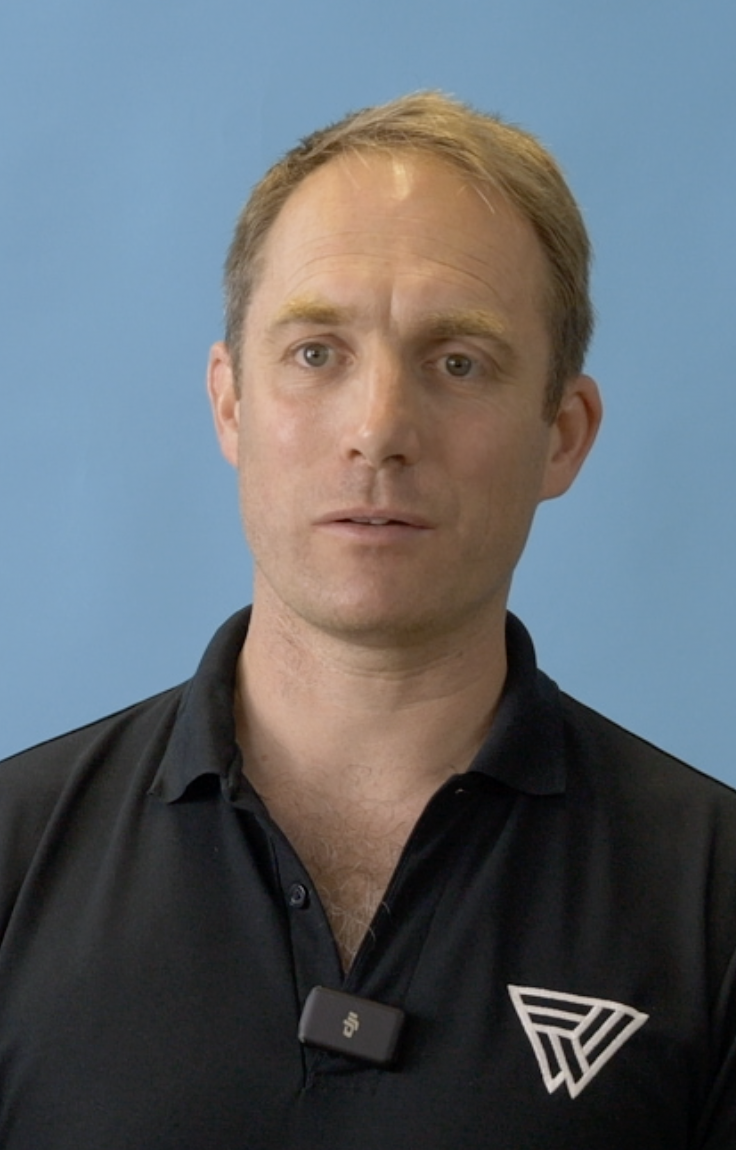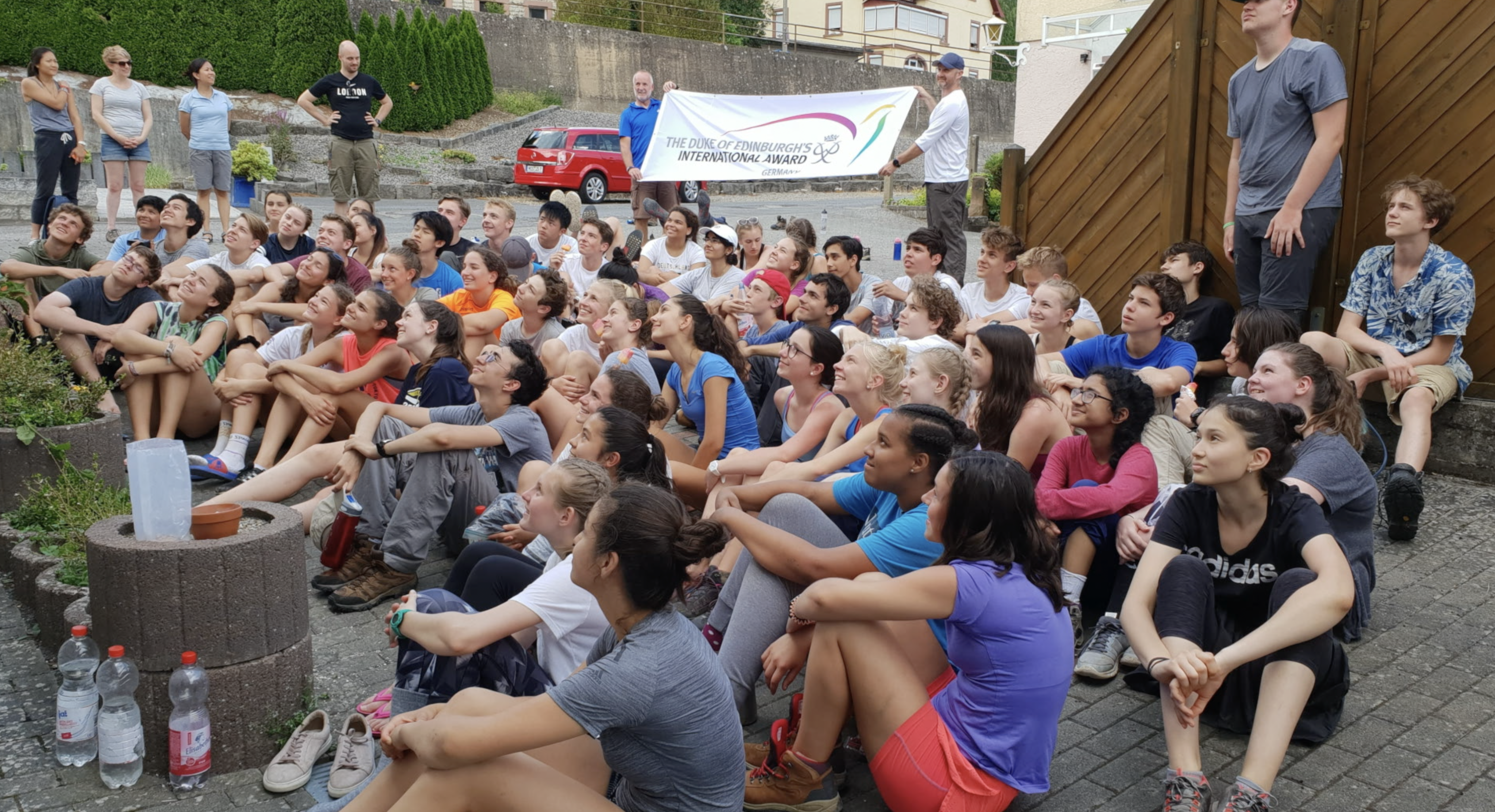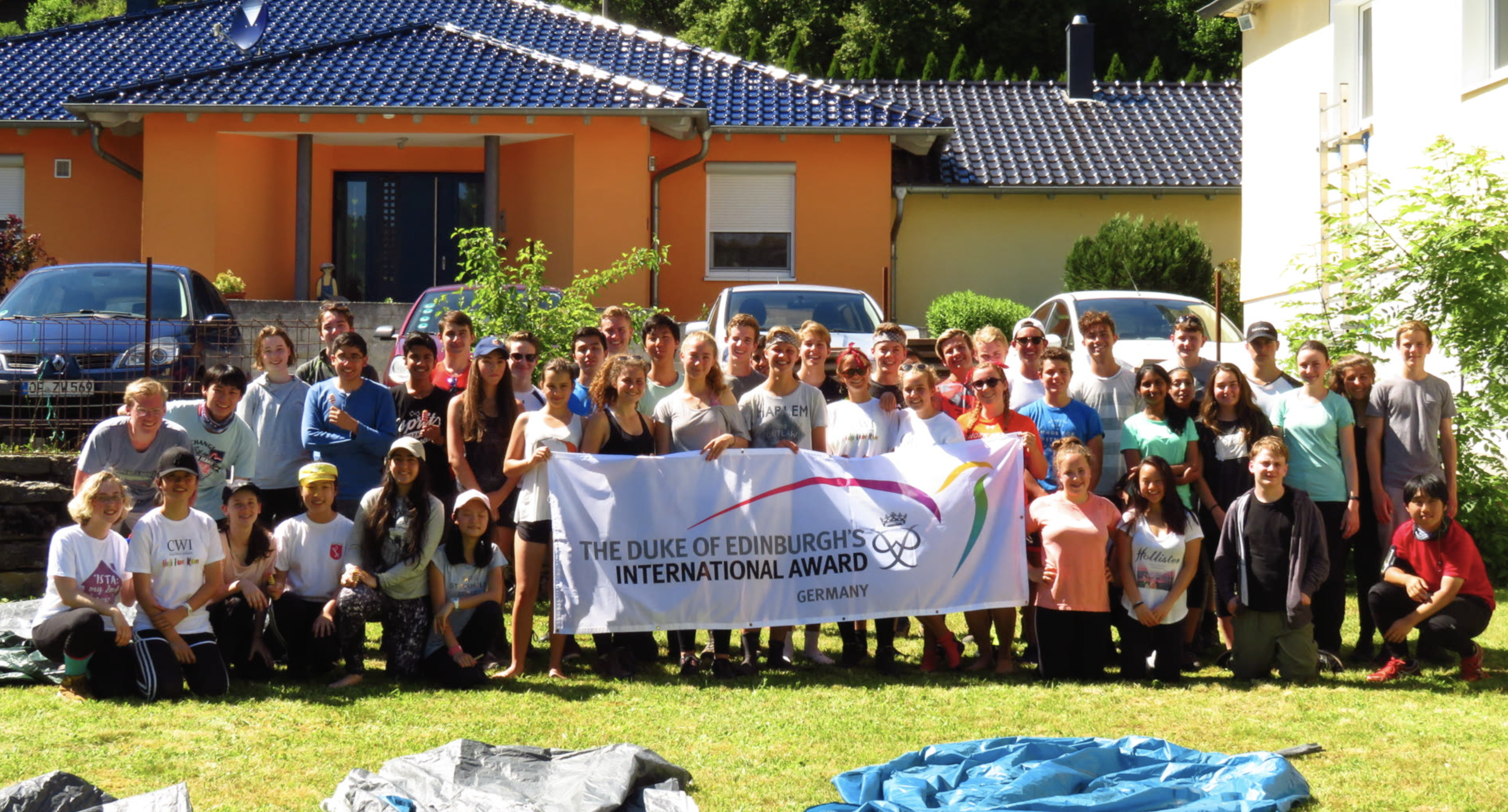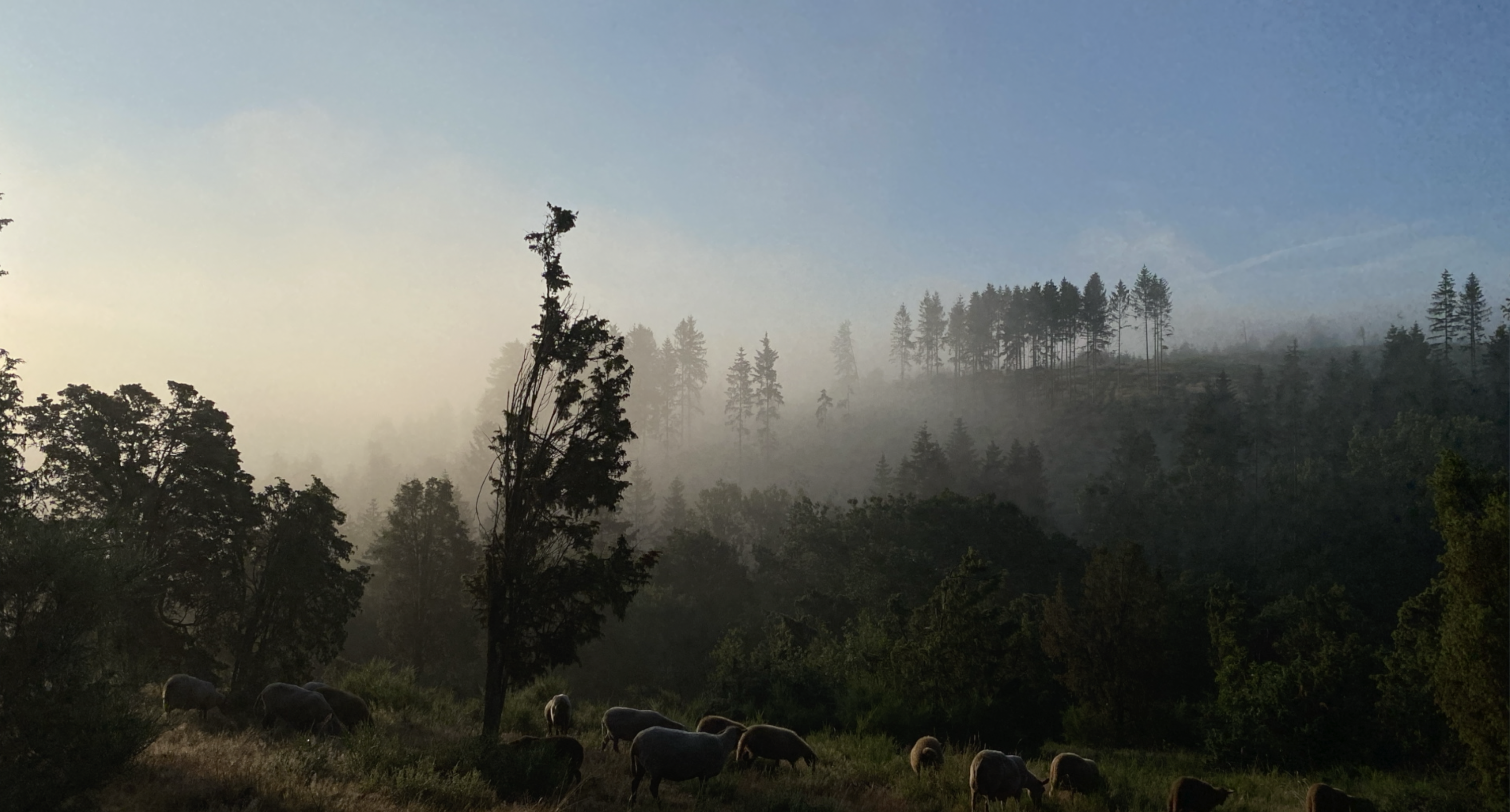The Award at an international school
Cooperation with the Frankfurt International School, Hessen
Interview between the Duke Award Youth Ambassadors Alina Sugar and Sophia Stalter with their Award Leaders Robert Holmyard and Adam Martin
Here you can find the whole video:
What is your relation to the Award?
Alins and Sophia: Hello, I am Alina Suga and I am Sophia Stalter and we are the Youth Ambassadors for the Duke of Edinburgh Award, and students from FIS. We’ve been doing the Duke of Edinburgh since Bronze and we’ve been doing it together and we’ve just completed the practice hike of our gold Award.
Adam: My name is Adam Martin and I’ve been involved with the Duke of Edinburgh here at Frankfurt International School since 2016, mainly running the Bronze program.
Rob: My name’s Rob Holmyard and I’ve been working on the Duke of Edinburgh Award since 2018, I am part of the team, and I mostly run the gold part of the Award.
What was the initial push to introduce the Award at FIS?
Adam: I only joined in 2016 and from what I’m aware of that it’d been run here for the last 10 or 15 years, I don’t know exactly, but it had been run on a very, very small scale, individual groups being selected by the coordinators. So then when I came in in 2016, we wanted to sort of grow that program. So, we introduced it to the grade 9 in 2016 and then allowed that to grow sort of organically from bronze only, to bronze and silver, and then to bronze and silver and gold. And really it was because the DofE program is a great program to help develop the skills that are very difficult to teach in a classroom. You know, it’s difficult to push people properly out of their comfort zone in a classroom. Whereas some of the challenges of the DofE allow those skills to develop organically as a product of completing those tasks.
How do you execute the Award?
Adam: The participants who start up in grade 9, that come in on the bronze group, in grade 9, so I guess we plan it with the idea of they will start in grade 9 at bronze and they’ll transition, and they’ll complete bronze and then silver and gold. And in that sense, once they’re enrolled in that and they’re the ball is rolling with their own Award, then it sort of takes care of itself. Our job then becomes one of support. And as I said there’s a lot of goodwill with it amongst the staff body and the community to try and help participants complete those components. Not everybody does bronze, not everybody’s here in grade 9. So, students who join in grade 10, they can become direct entry participants, similar grade 11, they can become direct entry participants for gold. And our role, once it’s moving, is to integrate those new participants into the program.
What do you do well facilitating the Award?
Rob: I think my specialties, I really kind of jumped on board because I like the adventurous journey side of things. I have a lot of experience in being an outdoor educator before I was a teacher. So I bring my experience there in terms of the training, in terms for the bronze, the silver and the gold, in terms of the navigation, the camp craft. And then for a few of them, like we look at more extreme training where we do some micro navigation, some night navigation. So, we like to put up a good challenge for the students. I think that’s where I come in.
Why should other schools offer the Award?
Adam: The Award does a great job of developing skills that are hard to teach in the classroom. You know there are life skills, soft skills, which are very hard to define at times. Those are the ones that, that people discover about themselves sometimes on the challenge when they’re in the, the 3rd or the 4th day of a, of an expedition and they’re knackered and they’re on their emotional roller coaster, they discover things about themselves that they didn’t perhaps know, and they discover things about other people in their group that they didn’t perhaps know. And it’s very difficult to get to that point in a classroom. So, I think about leadership skills and communication skills and emotional skills and social skills and team working skills and problem-solving skills and so on and so on.They’re essential for people moving in and post high school, moving into university, moving into the working world. And a lot of those skills are or can be developed by a program like the Duke of Edinburgh.
What should schools do if they still hesitate to offer the Award?
Rob: I think if school are still hesitant, they should just reach out to one of the schools that already run the program. It’s always good to go and speak to the students that have done the awards, the award leaders that run it, hear what they were saying and move forward from that. I think hearing the inspirational stories from the kids is definitely something that will sell you on the Award. We are always happy to like give advice, and we’ve helped a couple of other schools here in Frankfurt facilitate parts of the Award and so we’re always here if you need us.
How are you motivated as an Award Leader?
Rob: I think my motivation comes from seeing the challenges that the kids set themselves. One of like the factors that the DofE is founded on is like challenge by choice. And so we really encourage kids to come and join the program, take part in all aspects of it, the physical, the service, the adventurous journey and mostly it becomes self-selecting whether the kids stay or not. So I find it really rewarding by seeing kids actually set themselves these high goals and staying determined to achieve it. They don’t always get there, but that’s not really the point. Going through the journey, I think, is what gives me the motivation.
How do you find students who want to participate?
Rob: So now that we’ve built the program up for quite a few years, it has a reputation of something that is adventurous, that is exciting, and there’s all sorts of different motivations that children have for taking the Award. What I always put across to the kids is like: “This is your opportunity to challenge yourselves in all walks of life. This is not an academic talent, this is not your sports team challenge. You can find your own limits when you come in and join the DofE.”
How motivated do you think the students are?
Adam: I like to think very, but we’ve always, we’ve never made this compulsory program, it’s always been voluntary. Participants can join, if they want to join, they can join and they can withdraw themselves. So, it’s never any pressure directly from us. They have to do it. Therefore, anybody who’s completing, is completing as a product of their own initiative. So I’d like to think in that sense they are very motivated and there might be an initial extrinsic motivation to it, of I’m doing it because it looks good on a college application, etcetera. But I think as we move through the program, that extrinsic motivation becomes a little bit more internalized that people realize “Oh, I enjoyed that. I was proud of what I achieved and I’d like to go in again and do the next level of it.” And I certainly think that’s true of certainly we get to gold level. It’s quite an exclusive club and it’s not easy. We watched people struggle through that and it’s amazing to watch people struggle through. But it’s, you can see the motivation because people are prepared to go deep, to achieve it and that’s not, you could tap out at any point, but people don’t because they’re motivated to do it.
What do students struggle with most?
Adam: I think initially, sometimes it can come down to the structure and the routines that they’re required in order to do that. The initial structure of the program, like the most well known part of the program would be the adventurous journey, the expeditionary phase. That’s the one that I think most people talk about. And then the others they might have heard about that perhaps don’t know the detail of it. So, then they come in and they realize that the routine, that is required to make a success of it. Initially, that can be a little bit of a inertia, you know, that requires a little bit of a push to get going. And then but once they’re going, it actually is not that, it’s not that much of a time commitment. Writing reflections doesn’t take that much time across the course of a whole week.
Do you have a memorable experience?
Rob: I think my most memorable part of the Award was, it was our first gold student actually to complete a couple of years ago and her team, they had had a really great practice expedition. Then when it came to the first expedition, blistering heat and then torrential rain for two days. So, they had all the different weathers and she walked over the finish line, so to speak and her mum was there and I think they just hugged for about 10 minutes and they were so happy. And I think just seeing that great achievement for this particular girl, it’s really nice to see.
Adam: There’s always a sense of achievement. And, and when we take a step back and look at the program, what we’ve achieved over the last eight years, I think we’re very proud of what the programs become here. It’s now firmly embedded in the school culture. I think it is expected now that we’re going to continue to run. And that’s something I think me and the, the team in general are very proud of. And that’s when we look at, we watch participants go through it and come out of the other side of it, that celebration of it. I think that’s our, that’s what we’re here for. So, there’s no one moment necessarily that stands out per se. There’s just that sense of pride and achievement in the participants who have completed a very challenging program.
Why do you as participants do the Award?
Sophia: For me, it’s that feeling that you can’t do it, but then at some point you do realize, I can do this and you’re doing it and then you finish it and you did it. And it’s that feeling of powering through what seems hard and achieving it.
Alina: So actually, the moment I knew why I did Duke of Edinburgh and why I love it so much was the morning of, the 3rd morning of my silver hike, which we had hiked, you know, the past two days and we had woken up. I was the first one up. I opened my tent, and we were on top of this little hill and you could see everything we hiked up and there were these little sheep’s across this electrical fence and it was just, it’s something out of a fairy tale, it seemed like with trees and the mist and the sun was just rising up and it was just so magical and it felt so proud to have made it there and to be able to see that view. And that’s the moment I knew, that’s why I do Duke of Edinburgh.


